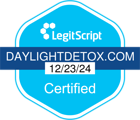Relapse is a common occurrence in the journey of addiction recovery. It might be irritating and depressing, but it is not the end of the path. Many experts consider relapse to be a normal part of the recovery process. The key to breaking the cycle of relapse is understanding the warning signs, triggers, and symptoms and having a plan to prevent it. In this blog post, we will discuss strategies for breaking the cycle of relapse in addiction recovery and provide tips for how to stop an addiction.
Relapse can happen to anyone, regardless of the substance, duration of sobriety, or type of treatment received. It is essential to understand that relapse is not a sign of failure but rather a part of the recovery process that can help an individual identify potential challenges and work on them. Let’s discuss the warning signs and triggers of relapse, relapse prevention strategies, and ways to break the cycle of relapse.
Understanding Relapse
Relapse is defined as a return to substance use after a period of abstinence. It can happen to anyone in recovery, regardless of how long they have been sober. Various factors, including stress, emotional turmoil, and social pressure, can trigger a relapse. It is essential to understand that relapse is not a sign of failure but rather an opportunity to learn and grow in recovery.
However, understanding relapse is not only about recognizing it but also about realizing why it happened. Relapse can happen for various reasons, such as inadequate coping mechanisms, feeling overwhelmed, or not having a proper support system. Understanding the reasons behind relapse can help an individual better prepare for future challenges and overcome them.
Relapse Warning Signs and Triggers
Relapse can sneak up on a person, so it is important to be aware of the warning signs and triggers. Some common warning signs include feeling overwhelmed, isolating oneself, and experiencing cravings. Triggers can be different for everyone, but some common ones include stress, boredom, and social pressure. By identifying and understanding one’s own warning signs and triggers, individuals can take steps to prevent relapse.
It is important to note that relapse triggers can be different for everyone and can also change over time. For example, a person may have a trigger of a specific place or person that may not trigger them anymore. Monitoring oneself and identifying new triggers as they arise continuously is essential. By doing this, a person can take proactive steps to avoid them and prevent relapse.
Relapse Prevention Strategies
Preventing relapse is crucial for maintaining lasting recovery. Some effective relapse prevention strategies include therapy, support groups, and developing a support system. Therapy can help individuals identify and address underlying issues contributing to substance use. Support groups provide a safe environment for individuals to share their experiences and gain insight from others who have been through similar struggles. Developing a support system of friends and family can also provide a source of strength and encouragement during difficult times.
Another critical strategy for relapse prevention has a plan in place. A relapse prevention plan is a personalized plan that outlines an individual’s steps to prevent relapse and maintain recovery. It should include identifying triggers, developing coping mechanisms, and having a support system. A relapse prevention plan can serve as a guide during difficult times and provide a sense of control and direction.
Breaking the Cycle of Relapse
Breaking the cycle of relapse requires a combination of understanding and action. First, it is crucial to recognize the warning signs and triggers of relapse and have the plan to prevent it. This can include addiction and aftercare therapy, support groups, and developing a support system. Additionally, having a positive attitude and viewing and understanding relapse as an opportunity for growth and progress rather than a setback is vital.
Another important aspect of breaking the cycle of relapse is addressing any underlying mental health conditions. Many individuals struggle with addiction and mental health issues simultaneously, and managing both is crucial for long-term recovery. This may include seeking therapy or medication management and addressing any co-occurring disorders in addition to addiction treatment.
Conclusion:
Relapse is a common occurrence in the journey of addiction treatment and addiction recovery, but it does not have to be the end of the road. By understanding the warning signs, triggers, and symptoms of relapse and having a rehab and recovery plan to prevent it, individuals can break the cycle of relapse and continue on the path to lasting recovery. Remember that relapse is not a failure but rather an opportunity to learn and grow in addiction treatment, aftercare, and recovery. Keep in mind that breaking the cycle of relapse is a process that requires continuous self-reflection, self-awareness, and action. It is important to have a positive attitude and always remember that lasting recovery is possible.
At Daylight Recovery Center, we understand the importance of breaking the cycle of addiction and relapse. Our team of experienced rehab professionals is dedicated to providing the support and treatment resources needed to help individuals achieve lasting recovery. Please contact us if you or a loved one is struggling with addiction. Our drug rehab center in Florida offers a range of evidence-based treatment options and a welcoming, supportive environment to aid in the journey of recovery.
We understand that the decision to seek help for addiction can be overwhelming, which is why we strive to make the process as smooth as possible. Our recovery center is located in Florida, which makes it accessible to those in need of a rehab center. In addition, our team is available to answer any questions and guide you through the intake process, providing personalized support every step of the way.
So, don’t wait; take action today and visit our website daylightdetox.com for more information about our addiction, rehab, recovery, and relapse treatment options; you can also contact us for any questions or concerns. We are here to help you break the cycle of addiction and achieve lasting recovery.



